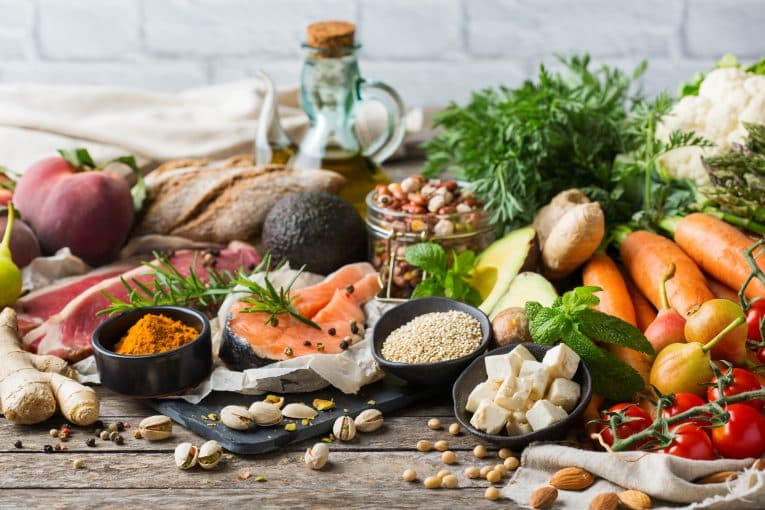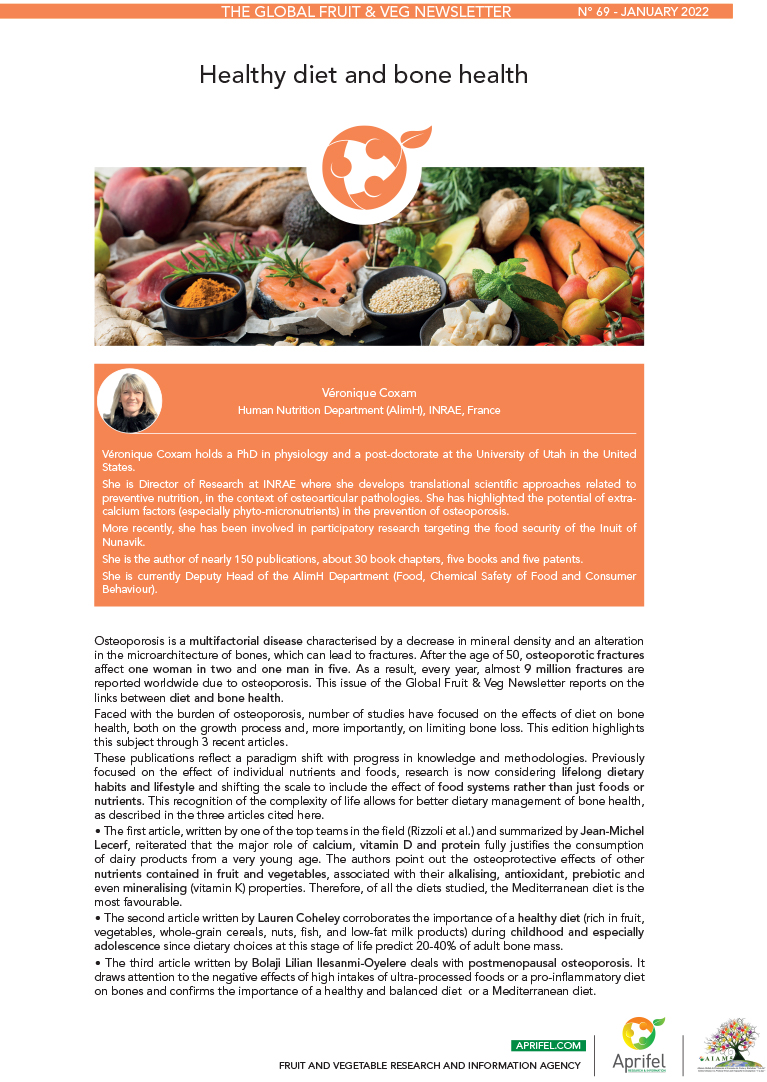Healthy diet and bone health
Editorial

Osteoporosis is a multifactorial disease characterized by a decrease in mineral density and an alteration in the microarchitecture of bones, which can lead to fractures. After the age of 50, osteoporotic fractures affect one woman in two and one man in five. As a result, every year, almost 9 million fractures are reported worldwide due to osteoporosis. This issue of the Global Fruit & Veg Newsletter reports on the links between diet and bone health.
Faced with the burden of osteoporosis, number of studies have focused on the effects of diet on bone health, both on the growth process and, more importantly, on limiting bone loss. This edition highlights this subject through 3 recent articles.
These publications reflect a paradigm shift with progress in knowledge and methodologies. Previously focused on the effect of individual nutrients and foods, research is now considering lifelong dietary habits and lifestyle and shifting the scale to include the effect of food systems rather than just foods or nutrients. This recognition of the complexity of life allows for better dietary management of bone health, as described in the three articles cited here.
- The first article, written by one of the top teams in the field (Rizzoli et al.) and summarized by Jean-Michel Lecerf, reiterated that the major role of calcium, vitamin D and protein fully justifies the consumption of dairy products from a very young age. The authors point out the osteoprotective effects of other nutrients contained in fruit and vegetables, associated with their alkalising, antioxidant, prebiotic and even mineralising (vitamin K) properties. Therefore, of all the diets studied, the Mediterranean diet is the most favourable.
- The second article written by Lauren Coheley corroborates the importance of a healthy diet (rich in fruit, vegetables, whole-grain cereals, nuts, fish, and low-fat milk products) during childhood and especially adolescence since dietary choices at this stage of life predict 20-40% of adult bone mass.
- The third article written by Bolaji Lilian Ilesanmi-Oyelere deals with postmenopausal osteoporosis. It draws attention to the negative effects of high intakes of ultra-processed foods or a pro-inflammatory diet on bones and confirms the importance of a healthy and balanced diet or Mediterranean diet.
Véronique Coxam holds a PhD in physiology and a post-doctorate at the University of Utah in the United States.
She is Director of Research at INRAE where she develops translational scientific approaches related to preventive nutrition, in the context of osteoarticular pathologies. She has highlighted the potential of extra-calcium factors (especially phyto-micronutrients) in the prevention of osteoporosis.
More recently, she has been involved in participatory research targeting the food security of the Inuit of Nunavik.
She is the author of nearly 150 publications, about 30 books chapters, five books and five patents.
She is currently Deputy Head of the AlimH Department (Food, Chemical Safety of Food and Consumer Behaviour).
